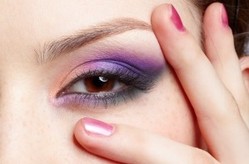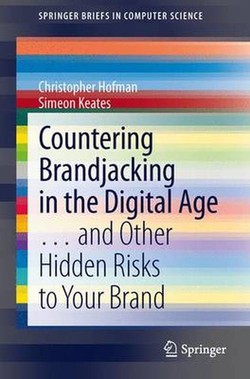Illegal tobacco ring dismantled
Illegal tobacco ring dismantled, Police say
28 arrests and $7 million in contraband seized; ring linked to Mafia, aboriginal organized crime
Police forces on both sides of the Canada-U.S. border have dealt a major blow to an illegal tobacco ring that they say was linked to the Mafia and aboriginal organized crime. Officials from the Sûreté du Québec, the Canada Border Services Agency, the RCMP and the U.S. Department of Homeland Security were on hand Wednesday as 400 officers fanned out in Montreal and the surrounding regions and began raiding dozens of properties. Among the locations targeted just before dawn were homes in St-Léonard and Valleyfield and a strip club in Dundee, near the border. In all, $7 million worth of contraband was seized and 28 people arrested. Police are still searching for seven people linked to the criminal ring, which allegedly involved close collaboration between the Mafia and aboriginal organized crime. Residents of Kahnawake said it was the first time they’d heard police refer to “aboriginal organized crime” and said the raids will affect many members of their community who depend on the cigarette industry to make an honest living.
Lear More
In brief: Record fake cosmetics seizure in Dubai
The authorities in Dubai have seized 1.4m counterfeit cosmetics and personal care products with an estimated market value of AED 16m ($4.4m).
The goods were seized by police and the Department of Economic Development (DED), according to a report in Gulf Today, which said the record haul included shampoos, soaps and skin creams, amongst other products.
Enforcement officers uncovered the counterfeits at a manufacturing facility and attached warehouse in a desert area of Dubai and have taken the owner of the site into custody.
Lear More
Vision Puts a Stop to Counterfeit Drugs
In 2011, the European Union defined a number of measures in its Falsified Medicines Directive (FMD) to prevent counterfeit or fake medicines from entering the legal supply chain in Europe. One of these measures specifies that pharmaceutical manufacturers will be required to print an obligatory feature on the outer packaging of drugs in order that the authenticity of the package can be uniquely verified.
http://www.novuslight.com/vision-puts-a-stop-to-counterfeit-drugs_N2630.html
Lear More
Beating the brandjackers: book launch
A new book that provides practical advice to businesses at risk of online attacks such as ‘cybersquatting’ has been published. Countering Brandjacking in the Digital Age is authored by Simeon Keates, professor in engineering at Greenwich University in the UK, and Christopher Hofman of the European Domain Centre (EDC), a registrar specialising in protecting business domain names.
The 87-page book draws on examples of best practice in the fields of risk management, interaction design and engineering design, and contains ‘real-world’ examples and interviews with a number of brand-owning organisations ranging from small companies to large multinationals.
Lear MoreSmuggling contraband into P.E.I. jail draws federal prison sentence
A 25-year-old Charlottetown man who smuggled drugs, tobacco, rolling papers and even a cigarette lighter into jail in his rectum is headed for prison. Murray James Todd was sentenced to two years in a federal correctional facility Wednesday for possession of drugs for the purposes of trafficking. He was sentenced to a further six months, consecutive to the first sentence, for trafficking in Hydromorphone. The first charge stems from an incident that began when police were dispatched to the parking lot of the Atlantic Superstore where Todd was observed drinking alcohol, holding a pipe used for smoking drugs and shouting.
Lear MoreWomen Arrested For Tobacco Smuggling
A 24 year old woman has been arrested by Phitshane Molopo Police, in connection to a case in which Tobacco worth 200 Thousand Pula was smuggled into the country. Speaking to Gabz Fm News this Morning, Assistant Superintendent Benjamin Modimo-osi said the Police got a tip off from reliable sources, that certain vehicles suspected to be carrying tobacco were at the border. Modimo-osi said upon arrival at the border, the suspects fled the scene but Police later discovered one of the cars was registered in the woman’s name. She told the Police that even though the car is registered in her names, her South African ex boyfriend, whom she broke up with 2 years ago, had been the one using it on the day it was discovered. The car was carrying 46 boxes with 50 cartons, containing 20 cigarettes each
Lear More
Plain tobacco packaging may fuel black market
Big supermarket chains and small dairy owners are warning plain tobacco packaging will slash their profits, and fuel the black market for cigarettes. Trina Snow from the Association of Retail Grocers, which represents those stores, has told a select committee plain packaging would make it easier to counterfeit tobacco products. “At the moment cigarette packets have got lots of designs and embossing on them which are hard to replicate. When you go to plain packaging, everybody’s got the design, it all looks the same so it’s going to be very easy to replicate any cigarette and just put the brand name on it.” Plunket and health experts have today made submissions supporting the proposed law change.
Lear MoreEU Regulators Warn of Counterfeit Copies of Cancer Drug Herceptin
EU regulators have issued a warning that several batches of the cancer medicine Herceptin (trastuzumab) have been “tampered with,” falsified and reintroduced into the supply chain, potentially putting patients at risk.
High-cost cancer medications like Herceptin have become an increasingly tempting target for thieves and counterfeiters in recent years. While they lack the ready market that some drugs like Viagra have, their extraordinary cost means extraordinary paydays. US officials warned of a similar scare in February 2012, when counterfeit copies of Roche’s Avastin (bevacizumab) were found to have infiltrated the US supply chain. Another batch of the counterfeit drug was found in April 2012.
In the wake of those findings, FDA went after more than a dozen physicians, who were blamed for purchasing the Avastin from unauthorized suppliers in the pursuit of higher profit margins.
Lear MoreTiny Particles could Help Verify Counterfeit Goods
Chemical engineers hope smartphone-readable microparticles could crack down on counterfeiting.
Some 2 to 5 percent of all international trade involves counterfeit goods, according to a 2013 United Nations report. These illicit products — which include electronics, automotive, and aircraft parts, pharmaceuticals, and food — can pose safety risks and cost governments and private companies hundreds of billions of dollars annually. Many strategies have been developed to try to label legitimate products and prevent illegal trade — but these tags are often too easy to fake, are unreliable, or cost too much to implement, according to MIT researchers who have developed a new alternative.
http://www.wirelessdesignmag.com/news/2014/04/tiny-particles-could-help-verify-counterfeit-goods
Lear MoreSoon, smart phone to help detect counterfeit goods
What about a smartphone-readable device that can help authenticate currency, electronic parts and luxury goods to minimise counterfeit? Chemical engineers from Massachusetts Institute of technology (MIT) have invented a new type of tiny, smartphone-readable particle that is invisible to the naked eye, contain colored stripes of nanocrystals that glow brightly when lit up with near-infrared light. “These particles can easily be manufactured and integrated into a variety of materials and can withstand extreme temperatures, sun exposure and heavy wear,” explained Patrick Doyle, a chemical engineering professor at MIT. They could also be equipped with sensors that can “record” their environments. To manufacture the particles, the researchers used stop-flow lithography, a technique developed previously by Doyle. Many strategies have been developed to try to label legitimate products and prevent illegal trade – but these tags are often too easy to fake, the researchers found. Using this procedure, the researchers can generate vast quantities of unique tags.
http://www.siasat.com/english/news/soon-smart-phone-help-detect-counterfeit-goods
Lear More


